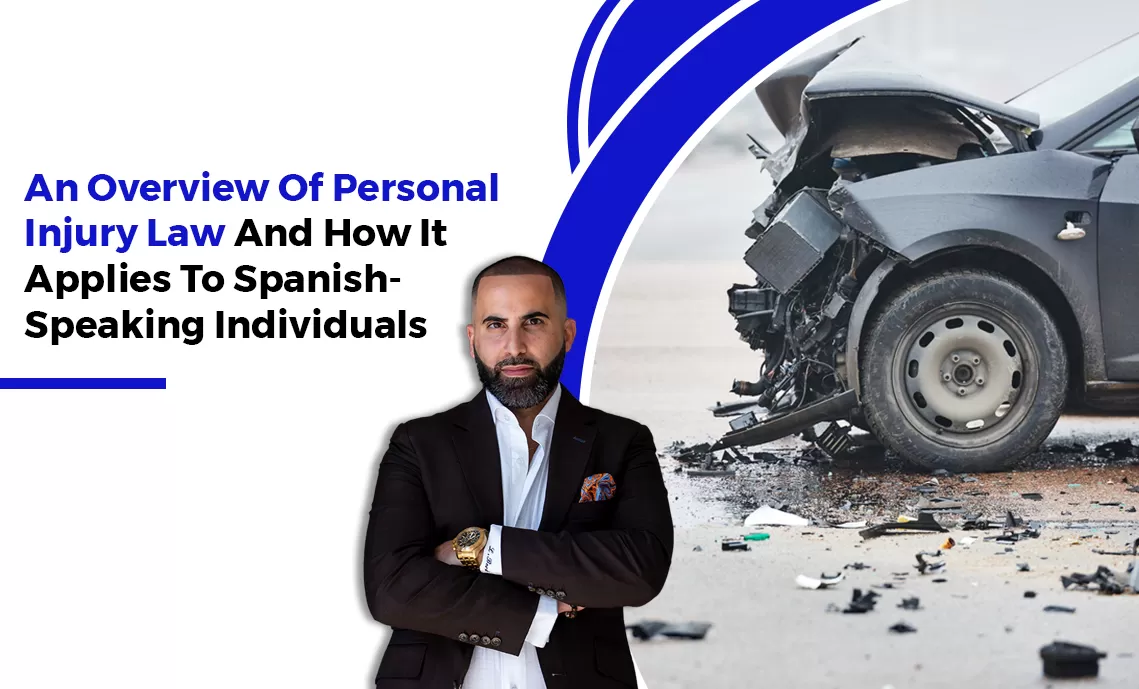Personal Injury Law covers different types of injuries, losses, and damages. It is particularly pertinent to Spanish speakers, who often face discrimination when accessing justice and are often unaware of their rights. In this blog, we will look at the basic principles of Personal Injury Law and how it applies to Spanish speakers.
What is personal injury law?
When someone is injured due to an accident, harmful action, or omission on someone else’s behalf, they may be entitled to seek compensation for their losses. Personal Injury Law is designed to protect an individual’s right to seek legal remedies for physical, emotional, financial, and general losses suffered due to the actions of others. Spanish speakers must understand their rights and the nuances of Personal Injury Law to protect themselves in the event of injury or harm.
In a Personal Injury claim, the plaintiff must demonstrate that injuries are the product of someone else’s negligence or wrongdoing. This can be a complex process, particularly if the defendant denies responsibility or is unaware of the law. Furthermore, resolving some personal injury claims can take a long time and can be costly, especially if a Spanish speaking personal injury attorney is required.
What is the difference between negligence and malice?
The concepts of negligence and malice are poles apart, but their consequence can often be the same; damage to people, property, and financial well-being. So what is the difference between them, and why does it matter?
Negligence is the failure to use a reasonable degree of care to avoid causing damage, injury, or harm to another person or property. It is usually the result of ignorance, carelessness, bad judgment, or a lapse in attention. In a court of law, the injured party must prove the other party failed in their duty of care, which resulted in damage.
On the other hand, malice is the intentional or wanton act of causing harm to another person or property. It usually involves deliberately inflicting harm, rather than simply making mistakes or lacking care. Malice could involve physical injury, destruction of property, or any attempt to ruin the reputation of another.
The difference between both concepts lies in the intent. Malice involves the deliberate desire and intention to harm, while negligence does not.
What are the different types of personal injury cases?
The first category of personal injury cases involves car accidents. Generally, they encompass situations where a person has been injured because of another person’s negligence while operating a vehicle. They could range from a collision with another car to a hit-and-run incident. These cases often require in-depth investigation to ascertain the fault of the at-fault driver, and compensation might range from medical costs to punitive damages.
Personal injury claims can be brought forth for animal attacks, medical malpractice, wrongful death, assault, and more, depending on the type and severity of the injury. The thing for claimants to note is that personal injury is a separate area of law from criminal law.
What are the benefits of hiring an Orlando Accident Attorney?
For starters, an Orlando accident attorney can be a great asset because they understand the ins and outs of personal injury law and the best possible strategies to pursue. These attorneys understand which forms to fill out, the paperwork that needs to be submitted, and even the rights the injured party is due. These lawyers can even answer any questions the injured party has and provide insight and advice to help them understand the situation more thoroughly.
A personal injury attorney can also help investigate the case, gathering evidence and testimony as needed, which helps to build a strong claim that can stand up in court. Lawyers are also great resources because they can remind the injured party of deadlines and help them understand the legal process from start to finish.
Furthermore, an experienced personal injury attorney is well-connected with medical professionals, which can help gather extensive evidence of the damage done and calculate the potential compensation to pursue.
Does my case qualify as a personal injury?
Personal injury cases can be nuanced and complex, but understanding the general themes of the claims available can be a good starting point for exploring a potential claim. Consequently, anyone from the Latino community considering legal action should speak to a qualified Spanish speaking personal injury attorney and embark on the process once they know their situation and rights.
Spanish speakers should know their rights and legal options when seeking compensation. In some cases, an injured party may be able to pursue a “claim by submission,” meaning they can submit an injury claim to the defendant’s insurance company. This is usually less time-consuming and costly than going to court. However, Spanish speakers may face particular obstacles in this process, as insurance companies might be unwilling to settle or will offer inadequate compensation.



